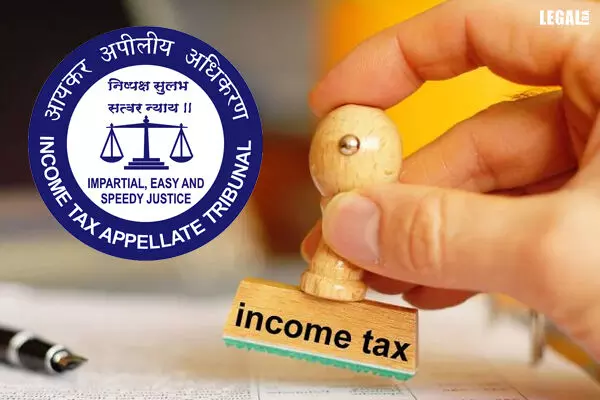- Home
- News
- Articles+
- ABOUT THE LAW
- AWARDS & ACCOLADES
- Aerospace
- Agriculture
- Alternate Dispute Resolution
- Banking and Finance
- Bankruptcy
- Book Review
- Bribery & Corruption
- Commercial Litigation
- Competition Law
- Conference Reports
- Consumer Products
- Contract
- Corporate Governance
- Corporate Law
- Covid-19
- Cryptocurrency
- Cybersecurity
- Data Protection
- Defence
- Digital Economy
- E-commerce
- Employment Law
- Energy and Natural Resources
- Entertainment and Sports Law
- Environmental Law
- FDI
- Food and Beverage
- Health Care
- IBC Diaries
- Insurance Law
- Intellectual Property
- International Law
- Labour Laws
- Litigation
- Litigation Funding
- Manufacturing
- Mergers & Acquisitions
- NFTs
- Privacy
- Private Equity
- Project Finance
- Real Estate
- Risk and Compliance
- Technology Media and Telecom
- Tributes
- Zoom In
- Take On Board
- In Focus
- Law & Policy and Regulation
- IP & Tech Era
- Viewpoint
- Arbitration & Mediation
- Tax
- Student Corner
- ESG
- Gaming
- Inclusion & Diversity
- Law Firms
- In-House
- Rankings
- E-Magazine
- Legal Era TV
- Events
- News
- Articles
- ABOUT THE LAW
- AWARDS & ACCOLADES
- Aerospace
- Agriculture
- Alternate Dispute Resolution
- Banking and Finance
- Bankruptcy
- Book Review
- Bribery & Corruption
- Commercial Litigation
- Competition Law
- Conference Reports
- Consumer Products
- Contract
- Corporate Governance
- Corporate Law
- Covid-19
- Cryptocurrency
- Cybersecurity
- Data Protection
- Defence
- Digital Economy
- E-commerce
- Employment Law
- Energy and Natural Resources
- Entertainment and Sports Law
- Environmental Law
- FDI
- Food and Beverage
- Health Care
- IBC Diaries
- Insurance Law
- Intellectual Property
- International Law
- Labour Laws
- Litigation
- Litigation Funding
- Manufacturing
- Mergers & Acquisitions
- NFTs
- Privacy
- Private Equity
- Project Finance
- Real Estate
- Risk and Compliance
- Technology Media and Telecom
- Tributes
- Zoom In
- Take On Board
- In Focus
- Law & Policy and Regulation
- IP & Tech Era
- Viewpoint
- Arbitration & Mediation
- Tax
- Student Corner
- ESG
- Gaming
- Inclusion & Diversity
- Law Firms
- In-House
- Rankings
- E-Magazine
- Legal Era TV
- Events
ITAT rules on deduction under IT Act
The bench observed that separate accounts were maintained for each windmill operated by the assessee and allowed its appeal
The Surat Bench of the Income Tax Appellate Tribunal (ITAT) presided by Dr. Arjun Lal Saini (accountant member) has held the deduction under Income Tax Act computed with respect to each unit independently, without clubbing loss of another unit.
The assessee, Gujarat JHM Hotels Ltd. is engaged in the business of hotels and owns power generation windmills.
During the reassessment, the assessing officer (AO) observed that the assessee owned nine windmills. Of these, in six windmills, the assessee showed a profit of Rs.2,369 crores. Whereas, in the remaining three windmills, the company incurred losses of Rs.5,953 crores. Thus, the overall loss was worth Rs.3.58 crores. As the assessee did not earn any income from the eligible business, as per the AO, he was not eligible for deduction under the IT Act.
The Commissioner of Income Tax (Appeals) allowed the assessees' appeal, but aggrieved by it, the revenue department filed an appeal before ITAT.
The appellant submitted that the assessee maintained a consolidated figure of power generation unit and no separate and independent books of account were maintained for the windmills. Therefore, the profit/loss of each windmill could not be ascertained from the incomplete record. That is why it disallowed the deduction of Rs.1,068 crores.
The assessee submitted that there was no restriction that two undertakings manufacturing the same type of product would be considered as one undertaking. The deduction was to be computed independently for each unit. This would take into consideration the profit of each unit without clubbing the loss of another unit.
The tribunal observed that separate accounts were maintained for each windmill undertaking. Therefore, the deduction was to be computed for each unit independently.
Relying on the decision in Rangamma Steels & Melleables, ITAT allowed the appeal. It held, "The assessee is eligible to claim a deduction of profit of each undertaking from different period. Each undertaking should be considered as a separate undertaking and cannot be clubbed in order to compute the deduction under the IT Act."



